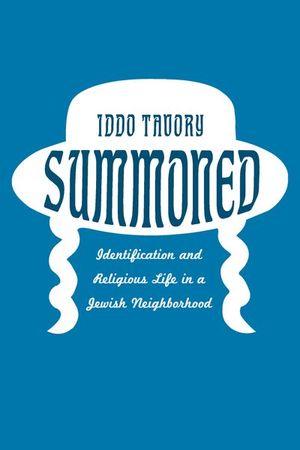Summoned
Published by The University of Chicago Press
On a typical weekday, men of the Beverly-La Brea Orthodox community wake up early, beginning their day with Talmud reading and prayer at 5:45am, before joining Los Angeles’ traffic. Those who work “Jewish jobs”—teachers, kosher supervisors, or rabbis—will stay enmeshed in the Orthodox world throughout the workday. But even for the majority of men who spend their days in the world of gentiles, religious life constantly reasserts itself. Neighborhood fixtures like Jewish schools and synagogues are always after more involvement; evening classes and prayers pull them in; the streets themselves seem to remind them of who they are. And so the week goes, culminating as the sabbatical observances on Friday afternoon stretch into Saturday evening. Life in this community, as Iddo Tavory describes it, is palpably thick with the twin pulls of observance and sociality.
In Summoned, Tavory takes readers to the heart of the exhilarating—at times exhausting—life of the Beverly-La Brea Orthodox community. Just blocks from West Hollywood’s nightlife, the Orthodox community thrives next to the impure sights, sounds, and smells they encounter every day. But to sustain this life, as Tavory shows, is not simply a moral decision they make. To be Orthodox is to be constantly called into being. People are reminded of who they are as they are called upon by organizations, prayer quorums, the nods of strangers, whiffs of unkosher food floating through the street, or the rarer Anti-Semitic remarks. Again and again, they find themselves summoned both into social life and into their identity as Orthodox Jews. At the close of Tavory’s fascinating ethnography, we come away with a better understanding of the dynamics of social worlds, identity, interaction and self—not only in Beverly-La Brea, but in society at large.
In Summoned, Tavory takes readers to the heart of the exhilarating—at times exhausting—life of the Beverly-La Brea Orthodox community. Just blocks from West Hollywood’s nightlife, the Orthodox community thrives next to the impure sights, sounds, and smells they encounter every day. But to sustain this life, as Tavory shows, is not simply a moral decision they make. To be Orthodox is to be constantly called into being. People are reminded of who they are as they are called upon by organizations, prayer quorums, the nods of strangers, whiffs of unkosher food floating through the street, or the rarer Anti-Semitic remarks. Again and again, they find themselves summoned both into social life and into their identity as Orthodox Jews. At the close of Tavory’s fascinating ethnography, we come away with a better understanding of the dynamics of social worlds, identity, interaction and self—not only in Beverly-La Brea, but in society at large.
BUY NOW FROM
COMMUNITY REVIEWS

